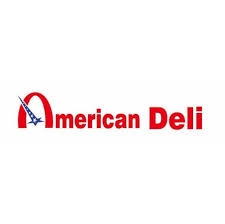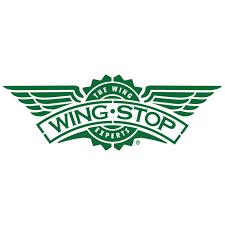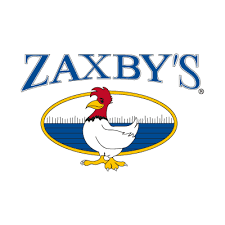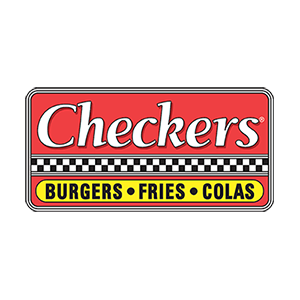American Deli Franchise in 2025: Costs, Fee & FDD
Discover whether American Deli is the right investment for you! Learn about its low-cost entry, strong regional presence, and growth potential, along with key insights into the franchise’s financials and operational costs. Dive deeper today!

Table of Contents:
American Deli is a fast-casual restaurant chain founded in 1989, known for blending American favorites with Southern-style cooking. The concept originated in Atlanta, Georgia, where it quickly gained popularity thanks to its casual dining atmosphere and an emphasis on comfort food. Its founders envisioned a place that offered delicious and satisfying meals at affordable prices, which helped it stand out in the highly competitive quick-service industry. Over the years, American Deli has solidified its place in the fast-food market, particularly in the southeastern United States, building a loyal customer base drawn to its flavorful and hearty menu.
The franchise’s core offerings revolve around American classics like wings, Philly cheesesteaks, subs, burgers, and fries, paired with Southern influences like fried fish and shrimp. It also offers a variety of side dishes, drinks, and combo meals, catering to customers who want a hearty, filling meal without breaking the bank. The chain serves a diverse customer base, with a focus on those looking for quick, affordable, and flavorful meals that go beyond the typical fast-food experience. Families, college students, and working professionals often make up the core clientele.
As of now, American Deli has grown to over 200 locations, primarily in the southeastern U.S., with a few expanding into other regions. The franchise has established a strong regional presence, especially in urban and suburban areas where there is demand for fast, yet satisfying meals. On a daily basis, American Deli locations serve thousands of customers, demonstrating the brand’s reach and consistent demand.
When it comes to franchise support, American Deli provides its franchisees with comprehensive training programs that cover everything from day-to-day operations to marketing strategies. New franchisees receive assistance with site selection, lease negotiation, and the setup process, ensuring they have the best possible foundation for success. The company’s ongoing support system includes field operations support, product development, and marketing assistance, which help franchisees maintain high operational standards and maximize profitability.
American Deli Franchise Insights
- American Deli charges a low franchise fee ranging from $7,500 to $10,000, making it a more affordable option compared to other quick-service franchises.
- There are currently 181 U.S. locations, with 180 being franchised, indicating the brand’s strong reliance on franchisees for growth.
- The franchise’s core menu item, wings, is a high-margin product, with American Deli locations selling an average of 2,000 wings per day, making it one of the chain’s top sellers.
- American Deli’s loyal customer base often returns for its signature Philly cheesesteaks, which accounts for about 30% of its daily orders, showing the importance of this staple item in driving sales.
American Deli Franchise Key indicators
Growth YOY (%)
5%
vs industry 0%
Total U.S. Franchised Units
180
3-Year Failure Rate
7%
vs industry 10%
How much does it cost to open an American Deli franchise?
Understanding the potential investment size and capital requirements is crucial when considering opening an American Deli franchise. These financial commitments, including initial franchise fees, equipment costs, and ongoing operational expenses, impact the feasibility and profitability of the venture. Thoroughly evaluating these factors ensures that potential franchisees are prepared for the financial responsibilities and can make informed decisions about their ability to sustain and grow the business, ultimately contributing to long-term success.
Min & Max Investment
Opening an American Deli franchise involves several key costs, which are outlined in Item 7 of the Franchise Disclosure Document (FDD). You can see a breakdown of the costs to open a American Deli below from the most recent Item 7 below:
| Type of Expenditure | Minimum Investment | Maximum Investment |
|---|---|---|
| Initial Franchise Fee | $7,500 | $10,000 |
| Build Out | $150,000 | $300,000 |
| Architectural Engineering | $5,000 | $20,000 |
| Legal Fees | $3,000 | $10,000 |
| Lease Payments and Other Rental Expenses | $9,000 | $18,000 |
| Equipment and Furniture | $50,000 | $65,000 |
| Signage | $12,000 | $17,000 |
| Initial Inventory and Supplies | $10,000 | $15,000 |
| Electronic Point of Sale (POS) System | $7,000 | $15,000 |
| Phone and Internet Service | $400 | $400 |
| Travel, Lodging, and Meals for Training | $1,600 | $3,000 |
| Business Supplies (Stationery, etc.) | $500 | $1,000 |
| Opening Publicity and Promotions | $3,500 | $5,000 |
| Business Licenses, Permits (First Year) | $5,000 | $20,000 |
| Insurance Deposits and Premiums (First Year) | $1,000 | $1,600 |
| Additional Funds (3 months) | $30,000 | $50,000 |
| Total Investment | $295,500 | $551,000 |
Item 7 in the Franchise Disclosure Document (FDD) is the “Estimated Initial Investment” section. It outlines the total costs a franchisee can expect to incur when starting a franchise, including the initial franchise fee, equipment, inventory, real estate, and other startup expenses. This section is crucial because it provides potential franchisees with a detailed understanding of the financial commitment required, helping them assess affordability and plan their investment strategy effectively.
Required Capital
To open an American Deli franchise, the required capital involves both the initial investment costs and a net worth requirement set by American Deli. Let’s take a closer look below:
- Initial Investment As shown above, the total estimated initial investment ranges from $295,500 to $551,000. This includes all the startup costs such as the franchise fee, real estate, construction, equipment, initial inventory, and additional funds for initial operating expenses. Assuming that you will finance your franchise investment, you should plan to have 20% of the total investment amount in the form of equity (cash) for the investment.
- Liquid Assets Generally, franchises in this sector expect franchisees to have liquid assets of at least $100,000 to $150,000 to cover initial startup costs and operational liquidity during the early months.
- Net Worth Most franchises in the quick-service industry, like American Deli, require potential franchisees to have a minimum net worth of around $250,000 to $500,000.
How much does a American Deli franchise owner make?
Calculating the salary of an American Deli franchise owner involves analyzing gross sales to determine total revenue, assessing operational efficiency to understand profit margins, and accounting for franchisor fees and additional expenses such as rent, utilities, and payroll. Effective management of these factors can significantly impact the profitability and financial success of a American Deli franchise owner. This comprehensive financial analysis helps estimate net profits, from which the owner’s salary can be derived. A clear understanding of these factors ensures accurate salary projections and financial planning for sustainable business operations.
American Deli Revenue & Gross Sales
American Deli has not publicly disclosed its median gross sales figures in its Franchise Disclosure Document (FDD), as it does not provide Item 19 financial performance representations. However, based on its growth to over 180 franchised locations and continued expansion, it appears to perform well within the quick-service restaurant sector. Franchisees benefit from a strong brand presence, especially in the Southeast, with popular menu items like wings and cheesesteaks driving consistent customer demand. While specific sales data isn’t available, the brand’s continued growth suggests a promising opportunity for potential franchisees.
Which key factors impact the average revenue performance of American Deli franchisees?
The performance of American Deli franchisee median gross sales is likely influenced by several factors. First, the brand’s strong focus on delivering affordable, comfort food, such as wings and cheesesteaks, continues to appeal to a wide customer base, especially in the Southeast where demand for quick-service meals remains high. Additionally, post-pandemic recovery has boosted foot traffic to fast-casual dining, with customers returning to in-person dining experiences. The brand’s simple menu and efficient operations have allowed franchisees to manage food costs and labor effectively. However, inflation and supply chain issues may have created pressure on profitability, impacting gross sales growth compared to the prior year.
American Deli Franchise Operational Costs
Operational costs for a franchise like American Deli are the ongoing expenses required to run the day-to-day operations of the business. These costs are essential for maintaining the business’s functionality and ensuring smooth operations. For a American Deli franchise, operational costs include:
- Food and beverage costs Regular expenses for fresh ingredients, which may fluctuate with market prices.
- Labor costs Wages for cooks, cashiers, and other staff needed to operate the franchise.
- Utilities Costs for electricity, gas, water, and other utilities necessary for running the kitchen and maintaining the dining area.
- Lease or rent Regular payments for the restaurant location, which will vary depending on market rates.
- Maintenance and repairs Costs for maintaining and repairing kitchen equipment and the facility.
- Local marketing initiatives Expenses for promoting your specific franchise location to attract more customers.
Careful planning and budgeting for these operational costs are crucial for the financial health and success of your American Deli franchise.
American Deli Franchise Fees
Here are the relevant ongoing fees to consider when opening an American Deli franchise:
- Royalty Fee 3% of gross sales, payable monthly, deducted via electronic funds transfer (EFT).
- Marketing Fund 1% of gross sales, with a maximum of 2%, payable monthly and also deducted via EFT.
- Cooperative Advertising Currently 0%, but could increase to a maximum of 1% of gross sales when cooperatives are established.
There might be additional fees depending on your specific location and any new policies introduced by the franchisor.
Understanding these ongoing fees is crucial for managing the financial health of your franchise and ensuring compliance with the franchisor’s agreements.
American Deli Franchise Earnings
While American Deli does not provide specific median gross sales figures in its Franchise Disclosure Document, owner-operators in the quick-service restaurant sector typically see earnings influenced by location, customer traffic, and operational efficiency. For franchises with a similar investment range, gross sales can vary significantly, but high-traffic locations often generate substantial revenue through popular menu items like wings and cheesesteaks.
Owner-operators can potentially increase profitability by managing day-to-day operations closely, reducing labor costs, and keeping food and supply expenses in check. However, factors like local competition, rent, and fluctuating food prices can impact earnings.
How to Open a American Deli Franchise
Here’s an overview of the process to become an American Deli franchisee, from initial inquiry to the start of operations:
- Initial Inquiry You or your franchise specialist submits an initial inquiry basic information about your interest and background. You should also conduct thorough research on the franchise, including seeing all of the information available on the Vetted Biz franchise intelligence platform, including access to the most recent Franchise Disclosure Document (FDD).
- Application Submission After receiving an initial response, you will be asked to complete a formal franchise application. This includes sharing financial details such as your net worth and liquid assets to determine if you meet the qualifications.
- Discovery Day Many franchises, including American Deli, may invite potential franchisees to a “Discovery Day.” This is a visit to the corporate office or an existing location, where you can meet the franchisor and ask detailed questions about the business model.
- Franchise Agreement Signing After Discovery Day and due diligence, if both parties are ready to move forward, you will sign the franchise agreement and pay the initial franchise fee.
- Site Selection and Lease Negotiation With the support of the franchisor, you will begin searching for the right location. This step includes negotiating the lease and ensuring the space meets the franchise’s operational standards.
- Training American Deli provides a comprehensive training program that covers all aspects of running the business, including operations, marketing, and customer service.
- Build-Out and Pre-Opening Once the location is secured, the build-out begins, which includes installing equipment, interior design, and signage. During this time, you will also work on hiring staff and conducting pre-opening marketing campaigns.
- Grand Opening After the build-out and final preparations, your business will be ready to launch. American Deli will support you during the grand opening, ensuring a smooth start to operations.
Pros & Cons
Pros
Flexible Location Options: American Deli locations can be set up in various environments, from high-traffic malls to standalone units, offering flexibility in finding the right location.
Low Operational Costs: With a 3% royalty fee and a 1% marketing fee, American Deli has lower ongoing costs compared to other franchises, potentially increasing your margins.
Strong Regional Brand: With over 180 locations, primarily in the Southeast, American Deli benefits from strong brand recognition and a loyal customer base.
Cons
Limited Nationwide Presence: While popular in the Southeast, the brand’s reach is not as extensive in other regions, which could limit growth potential in certain areas.
No Item 19 Disclosure: The lack of financial performance data in the FDD (Item 19) makes it harder to assess profitability before investing.
Niche Market Appeal: The menu is focused on comfort food, which may not appeal to health-conscious consumers or certain market demographics.




